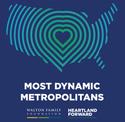Silicon Valley
Buzz Aldrin, lunar module pilot, walks near the lunar module during the Apollo 11 extravehicular activity. (NASA file photo) California may have gotten its global allure from the Gold Rush and the movies, but it’s planes, missiles and now drones and spaceships that have underpinned the state’s industrial emergence.
Today, after decades of rapid decline, California’s aerospace employment is growing again, albeit slowly, providing a new chance for the state’s productive economy. read more »
Tech elites paid for the rope that may hang them.
The term “useful idiot,” often credited to Vladimir Lenin, applies to people supporting a cause or movement injurious to their own self-interest. read more »
Despite the media’s obsession on gender, race and sexual orientation, the real and determining divide in America and other advanced countries lies in the growing conflict between the ascendant upper class and the vast, and increasingly embattled, middle and working classes. We’ve seen this fight before. The current conflict fundamentally reprises the end of the French feudal era, where the Third Estate, made up of the commoners, challenged the hegemony of the First Estate and Second, made up of the church and aristocracy. read more »
When there is a general change in conditions, it is as if the entire creation had changed, and the whole world altered. —Ibn Khaldun, 14th-century Arab historian
Congressional posturing about tech firms may have quieted for the moment, but the existential crisis that these firms are creating remains as now unchecked. Even faced with opposition on both sides of the aisle, the oligarchs—those five tech giants that now constitute the world’s five most wealthiest companies—continue to rapidly consolidate economic, cultural, and, inevitably, political power on a scale not seen for over a century. read more »
We live, as the Indian essayist Saeed Akhter Mirza has put it, in “an age of amnesia.” Across the world, most notably in the West, we are discarding the knowledge and insights passed down over millennia and replacing it with politically correct bromides cooked up in the media and the academy. In some ways, this process recalls, albeit in digital form, the Middle Ages. read more »
It would be comforting if Nike’s decision to ditch its “Betsy Ross” flag sneakers at the behest of former NFL quarterback and social justice warrior Colin Kaepernick was exceptional, but, sadly, it is not. Increasingly, many of our most powerful companies eagerly kowtow to the purveyors of political correctness — such as those who compared the revolutionary banner to the Nazi swastika flag or that of the Confederacy. read more »
For the past decade, the soaring stock prices and nosebleed valuations of Silicon Valley’s IPOs and unicorns has been a boon for California, helping create a record budget surplus of almost $22 billion.
Yet this bonanza has occurred just as the state’s overall job creation, once among the country’s leaders, has slowed to a more middle of the road status, well below the rates for key competitors such as Nevada, Arizona, Washington State and Texas. read more »
There seems to be no good reason why a thoroughly scientific
dictatorship should ever be overthrown.
~Aldous Huxley, Brave New World Revisited
The recent movement to investigate, and even break up, the current tech oligarchy has gained support on both sides of the Atlantic, and even leapt across the gaping divide in American politics. The immediate concerns relate to such things as the control of key markets by one or two firms, the huge concentration of wealth accruing to the tech elite and, increasingly, the oligarchy’s control over and manipulation of information pipelines. read more »
Today, the Walton Family Foundation released “The Most Dynamic Metropolitans,” new research ranking the economic performance of metropolitan areas in the Heartland and across the country. The study demonstrates that a knowledge-based economy spurs economic growth in metropolises across the United States. Metro areas with knowledge-based economies ranked higher than cities that have yet to make much-needed investments in technology, education, entrepreneurship and commercialization. read more »
When we think about organizing precarious “gig” workers, the task seems biblical. The workers may be ready, or not, but the spirit and the flesh are weak. We all bemoan the rise of gig workers. Low pay, few hours, no benefits are some of them, worsened by the uncertainty of a position where you can only work to deliver something being demanded by consumers at a premium you are powerless to control. read more »
|





















